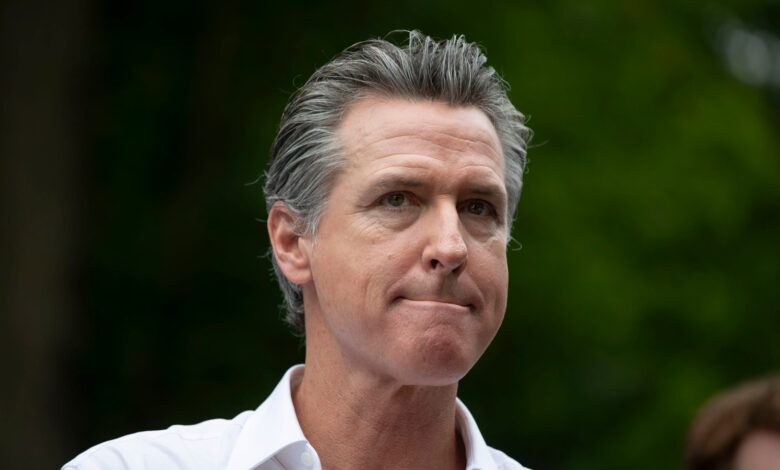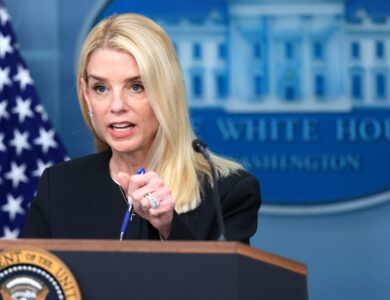Newsom’s Prop 50 Redistricting Effort Most Expensive In State’s History

With less than five weeks remaining until Election Day, the battle over a California ballot measure that would reshape congressional districts to benefit Democrats has become one of the most expensive initiative campaigns in the state’s recent history.
The campaigns for and against Gov. Gavin Newsom’s Proposition 50 have raised more than $215 million as of October 2, including over $100 million in September alone — making it the third most expensive ballot measure in California over the past decade.
Only Proposition 22 in 2020, which sought to redefine the employment status of rideshare drivers, and Proposition 27 in 2022, which aimed to legalize online gambling, have drawn higher campaign spending, CalMatters reports.
The campaign in support of Proposition 50, led by Governor Gavin Newsom, has raised more than $138 million, according to state filings. Roughly $49 million, or about 40% of that total, came from small donors contributing less than $100 each, with most of those contributions reported by the House Majority PAC.
Five major donors collectively contributed just over $25 million to the effort, CalMatters noted. Per the outlet, they are:
- $10 million: House Majority PAC, a SuperPAC focused on electing Democrats to Congress;
- $10 million: George Soros’ Fund for Policy Reform, which focuses on drug policy and electoral reform, according to IRS filings;
- $6.9 million: MoveOn.org, a liberal grassroots organization;
- $3 million: The California Teachers Association, a powerful union with close ties to Democrats;
- $3 million: The National Education Association, the largest teachers union in the country that gives overwhelmingly to Democrats.
Newsom also transferred $2.6 million from his 2022 reelection campaign to support the “Yes” effort. According to a CalMatters analysis of data from the California Secretary of State, more than 68,000 individual contributors have donated to the campaign, the outlet reported.
Opponents of the redistricting measure have raised $77 million, with more than 90% of that total coming from just two major donors. The opposition campaign has attracted relatively few small-dollar contributions, reporting only $8,300 from donors who gave less than $100.
They are, per CalMatters:
- $42 million: The Congressional Leadership Fund, a Super PAC controlled by Republican leadership in Congress;
- $33 million: Charles Munger Jr., who contributed to the original ballot measure that created the independent redistricting commission;
- $1 million: Kevin McCarthy, former Republican Speaker of the U.S. House of Representatives, who transferred the money from his campaign account, far less than the $100 million he said he would raise a few weeks ago;
- $1 million: Thomas Siebel, a Bay Area billionaire businessman who is related to First Partner of California Jennifer Siebel Newsom;
- $50,000: Republican donor Susan Groff.
Several outside groups not directly affiliated with the official campaigns have also poured money into the fight over Proposition 50. At least 15 organizations have spent more than $540,000 supporting the measure through advertising and voter outreach, while at least seven groups have spent more than $570,000 opposing it.
Governor Gavin Newsom introduced the ballot measure following pressure from the Trump administration, which urged Texas to redraw its congressional districts in a way that could shift five Democratic-held seats to Republicans ahead of the 2026 midterm elections.
Because Californians established an Independent Redistricting Commission through a 2008 ballot initiative, Newsom must obtain voter approval to move forward. If approved, Proposition 50 would suspend the commission’s current maps until 2030, temporarily returning redistricting power to the state legislature.
Meanwhile, Newsom has vetoed a bipartisan bill in California that would have raised pay for state firefighters “nine months after the most expensive inferno in state history incinerated Los Angeles,” the New York Post reported.
On Friday, Newsom declined to sign legislation that would have increased pay for Cal Fire employees, bringing their salaries closer to those of local fire departments that pay firefighters 11% to 29% more.
According to an analysis by the State Assembly, the measure would have cost the state between $373 million and $609 million in its first year of implementation, The Post reported.
“Newsom said the bill would put ‘significant cost pressures’ on state coffers — even as his administration earmarks nearly $300 million for a special election to redraw congressional districts in an attempt to maximize the number of Democratic House seats,” The Post reported.





